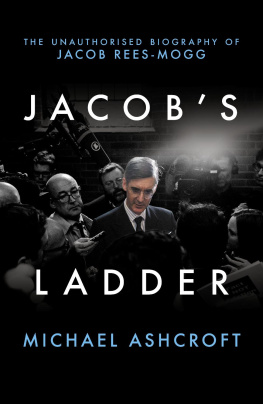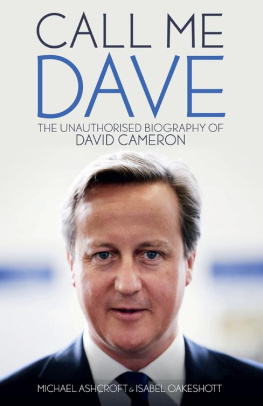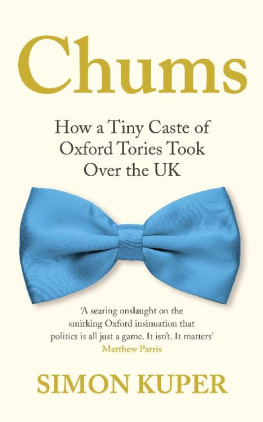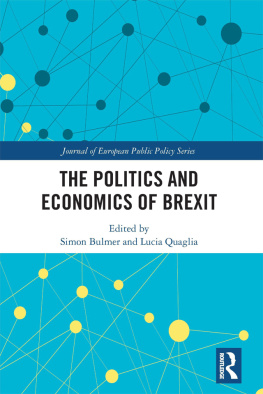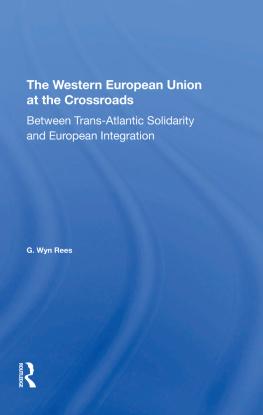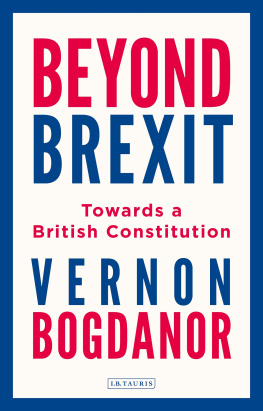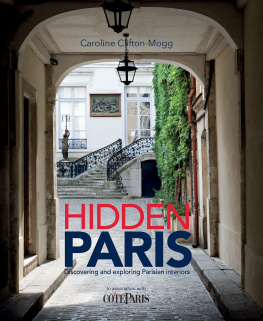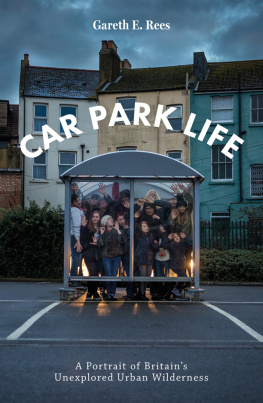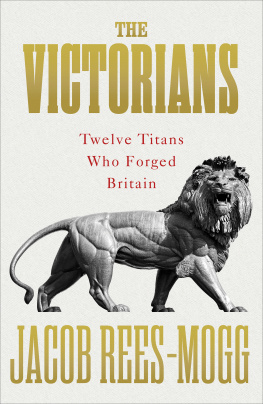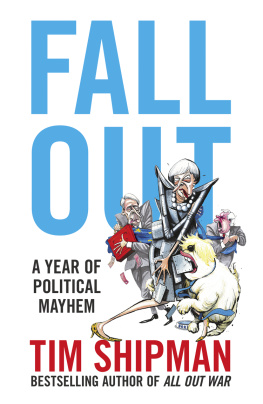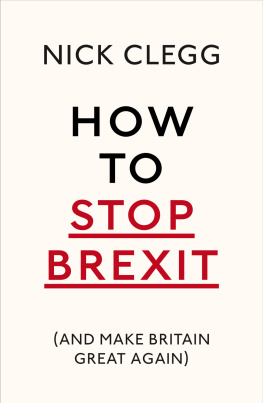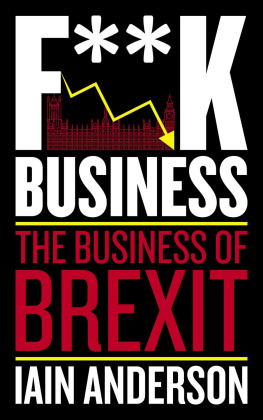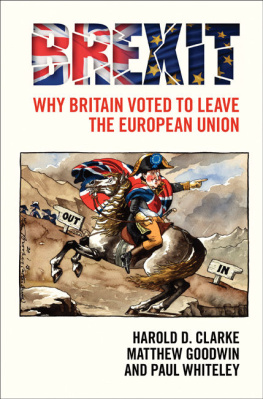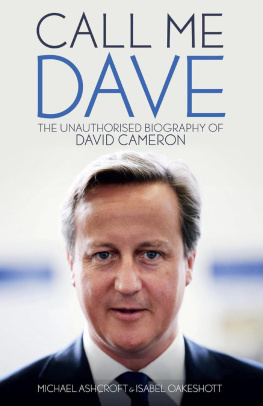OCTOBER 2017
O utside the conference centre, thousands of left-wing protesters and anarchists marched through the city demanding the toppling of the government. One, seemingly unaware that Rees-Mogg was not a member of Theresa Mays Cabinet, held a banner depicting him with an arrow through his head and the word c*** written on his forehead. At the same time, inside the conference centre, merchandise stalls sold memorabilia and trinkets including Moggmentum Shaving Cream at 5 per tin. If there had ever been doubt in Rees-Moggs mind about how well known he had become in Britain, being loved and loathed so publicly in equal measure surely would have laid any uncertainty to rest.
Over the next few days, he spoke at several fringe events, each one a sell-out attracting hundreds of party members. Having spent the summer lashing out at EU chiefs including the President of the EU Commission, Jean-Claude Juncker, whom he labelled a pound shop Bismarck for apparently trying to force a payment of up to 80 billion from the UK before any post-Brexit trade deal talks could begin, he had a receptive audience. They appreciated his deeply held view that Britain should be a sovereign state responsible for its own affairs. Indeed, he confirmed his status as the favourite among Conservative grassroots members when he used one conference fringe meeting to turn his fire on the government for what he thought was its persistently negative stance on Brexit. Again, his high profile meant that he was targeted by those who oppose his politics. During a meeting of the Bruges Group at Manchester Town Hall, a group of demonstrators wielding placards burst in yelling, Tory scum. Rees-Mogg was branded a despicable person by one protester and was told he was not welcome in Manchester. Showing a certain amount of courage in what must have been intimidating circumstances, he decided to speak to the man instead of calling for a security guard to remove him. What do you disagree with me about? he asked. Everything! the protester shouted. Mention something specific, said Rees-Mogg, prompting his opponent to speak of his attitude to austerity and abortion. Rees-Mogg then tried to engage the man in debate. Its important to have the conversation, he said. Youre welcome to talk to me, but its difficult if your intention is merely to shout and wave leaflets. It was precisely the measured response his supporters had come to expect from the politest man in Parliament, and it had the effect of neutralising the situation, though the intruders were eventually led away by a security guard. At a separate event later the same day this time protected by police officers he received cheers as he urged his party to stop faffing about and enact Brexit, while also backing Foreign Secretary Boris Johnsons calls for a clean break with Brussels. When Johnson spoke at a fringe event himself, however, most commentators agreed he seemed to have lost some of his sparkle. Rees-Mogg had to a degree upstaged his friend and was considered the hotter ticket.
Following the various unwanted intrusions on his life, some MPs might have shied away from further public appearances for a while, but Rees-Mogg was determined not to be knocked off course. In October 2017, he took up an invitation from executives at the radio station LBC to host a three-hour phone-in programme, covering for the weekday morning presenter James OBrien. He was considered a good enough broadcaster for the ConservativeHome website to offer him his own fortnightly podcast, known as the Moggcast, soon afterwards. In April 2018, he added to this commitment by accepting a regular half-hour show, Ring Rees-Mogg, each fortnight on LBC. (By January 2019, the station had given him his own hour-long show during the peak drive-time slot every Friday night. He insists on presenting this programme from his constituency home in Somerset, sometimes with a fire burning behind him, rather than from LBCs studios in London.) Given his comfortable financial status, it can be stated with some confidence that he did not accept these opportunities solely for the money.
In November 2017, Rees-Mogg again attracted negative attention in some quarters for his attendance at a private meeting with Donald Trumps former chief strategist Steve Bannon in London. The year before, Rees-Mogg had said he would almost certainly vote for Trump if I was American, but when a 2005 recording of Trump came to light in which he made derogatory remarks about women, Rees-Mogg distanced himself from the US politician and said he would abstain if he had a vote. Despite his cooling support for Trump, whom he has not met, he was happy to talk to Bannon, widely regarded by those on the left as a controversial figure through having worked for Trump for the first seven months of his administration and via his involvement in the American right-wing website Breitbart. They spoke for more than an hour in a Mayfair hotel, specifically about how conservative movements can become the dominant force in British and American politics. The meeting was reportedly brokered by Raheem Kassam, a former adviser to Nigel Farage and at that time a Breitbart employee in London. When Rees-Mogg was later asked about it, he played down its significance, claiming, I talk to any number of people whose political views I do not share or fully endorse. He also said it would be misleading to describe the meeting as convivial. No matter what they discussed, the fact that they had met at all was grist to the mill of some of Rees-Moggs adversaries.
In Parliament, unease among Brexit-backing MPs was growing. The following month, December 2017, Rees-Mogg made a memorable intervention during Prime Ministers Questions when he tackled Theresa May over Brexit, claiming that her so-called red lines regarding the border between the Republic of Ireland and Northern Ireland were fading. Up until that point, May had insisted that she would not bow to pressure from the EU when it came to the UK leaving the single market and customs union after Brexit. But when it was revealed in a leaked draft paper that she planned to have continued regulatory alignment between the Irish Republic and the North, major doubts about the future of Brexit rose to the surface. Rees-Mogg asked in the Commons, Before my Right Honourable Friend next goes to Brussels, will she apply a new coat of paint to her red lines, because I fear on Monday they were beginning to look a little bit pink. His comment generated laughter, but his point was a deadly serious one, showing the growing mistrust between May and her own MPs. Their belief that you cannot align regulation in one part of the UK with the EU because it would mean Britain effectively remaining in the bloc would dog British politics for months.

